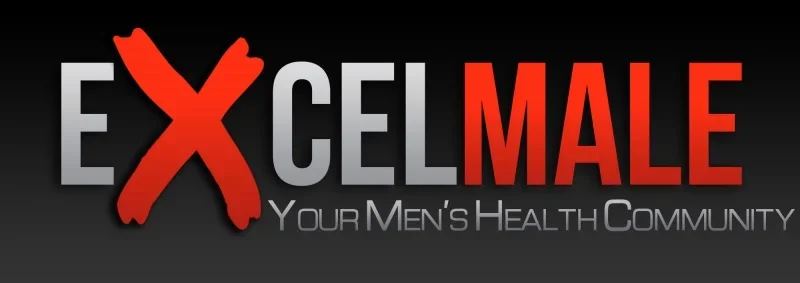Nelson Vergel
Founder, ExcelMale.com
A restrospective study published this week on the Journal of American Medical Association concluded that testosterone may increase the risk of cardiovascular problems in men with a history of heart disease. This study performed at the Venteran's Administration hospital sysmtem cautioned that men with pre-existing cardiovascular ailments who have low blood levels of testosterone (hypogonadism) might need to avoid testosterone replacement therapy (TRT) even if they need it to improve their lives.
Several published studies have found that untreated prolonged low testosterone blood levels can increase the risk of cardiovascular disease. Although the men in this study were treated mostly with testosterone skin patches, their blood levels of testosterone never increased to desirable levels. Even more concerning is the fact that the study failed to monitor 40 % of these patients who never had their testosterone blood levels retested after they started TRT . A recently published study showed that men with total testosterone (TT) blood levels below 550 ng/dl had a significant increase in their risk of cardiovascular disease, while men with TT above 550 ng/dl reduced their risk by 30%. Most participants in this study were only able to increase their TT levels to 332 ng/dl, a level that still classifies them as having testosterone deficiency.
Another pitfall of this study is that it did not manage hematocrit (red blood cell volume) and estradiol ( a female hormone produced by testosterone's conversion in the body). High levels of hematocrit and estradiol can increase cardiovascular risks. However, both estradiol and hematocrit are easily managed when a comprehensive TRT protocol is used to prevent these side effects.
The majority of participants in this study used testosterone patches. Once a popular method of testosterone delivery, testosterone patches are no longer used due to their poor absorption and inconvenience. Patches are highly inefficient in terms of optimizing testosterone, resulting in continued hypogonadal symptoms and increased cardiovascular risk.
Perhaps the most startling piece of the study that was missed altogether or largely ignored by most reports was the rate of reported cardiovascular events. After close scrutiny of study results it is easily discerned that of those men who used testosterone, 10% experienced a cardiovascular event. Of those men not taking testosterone, 21% experienced a cardiovascular event. The rate of mortality was greater in those who did not take testosterone.
Publishing studies with these many deficiencies that recommend not treating men who could benefit from testosterone replacement therapy increases the misconceptions surrounding this important therapy and alarms men currently on TRT. We caution physicians and patients alike to closely examine studies for any misleading information that could increase barriers to access to therapies that can considerably improve quality of life, mortality and morbidity of hypogonadal men.
Register on ExcelMale.com to stay ahead of the curve: Register
Several published studies have found that untreated prolonged low testosterone blood levels can increase the risk of cardiovascular disease. Although the men in this study were treated mostly with testosterone skin patches, their blood levels of testosterone never increased to desirable levels. Even more concerning is the fact that the study failed to monitor 40 % of these patients who never had their testosterone blood levels retested after they started TRT . A recently published study showed that men with total testosterone (TT) blood levels below 550 ng/dl had a significant increase in their risk of cardiovascular disease, while men with TT above 550 ng/dl reduced their risk by 30%. Most participants in this study were only able to increase their TT levels to 332 ng/dl, a level that still classifies them as having testosterone deficiency.
Another pitfall of this study is that it did not manage hematocrit (red blood cell volume) and estradiol ( a female hormone produced by testosterone's conversion in the body). High levels of hematocrit and estradiol can increase cardiovascular risks. However, both estradiol and hematocrit are easily managed when a comprehensive TRT protocol is used to prevent these side effects.
The majority of participants in this study used testosterone patches. Once a popular method of testosterone delivery, testosterone patches are no longer used due to their poor absorption and inconvenience. Patches are highly inefficient in terms of optimizing testosterone, resulting in continued hypogonadal symptoms and increased cardiovascular risk.
Perhaps the most startling piece of the study that was missed altogether or largely ignored by most reports was the rate of reported cardiovascular events. After close scrutiny of study results it is easily discerned that of those men who used testosterone, 10% experienced a cardiovascular event. Of those men not taking testosterone, 21% experienced a cardiovascular event. The rate of mortality was greater in those who did not take testosterone.
Publishing studies with these many deficiencies that recommend not treating men who could benefit from testosterone replacement therapy increases the misconceptions surrounding this important therapy and alarms men currently on TRT. We caution physicians and patients alike to closely examine studies for any misleading information that could increase barriers to access to therapies that can considerably improve quality of life, mortality and morbidity of hypogonadal men.
Register on ExcelMale.com to stay ahead of the curve: Register












